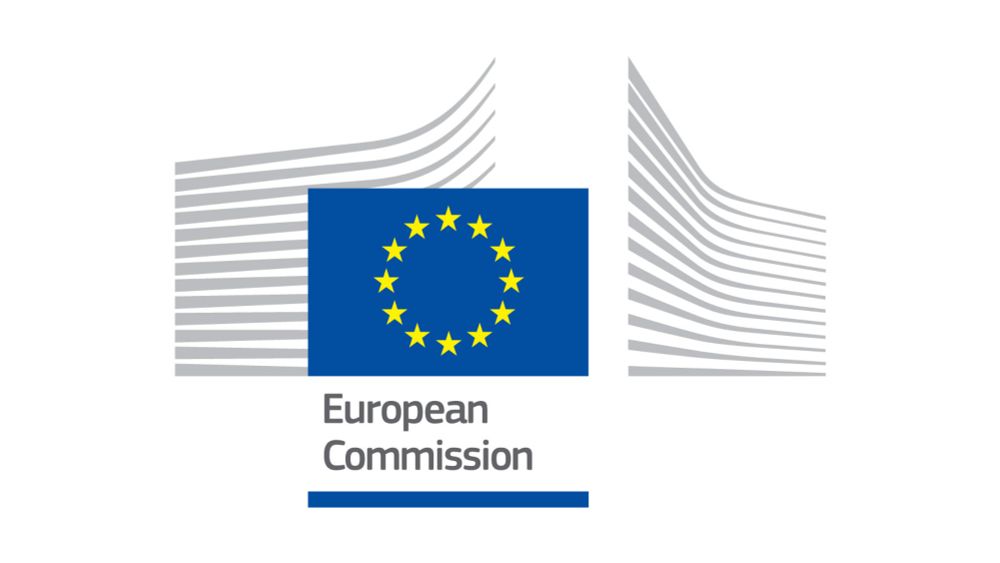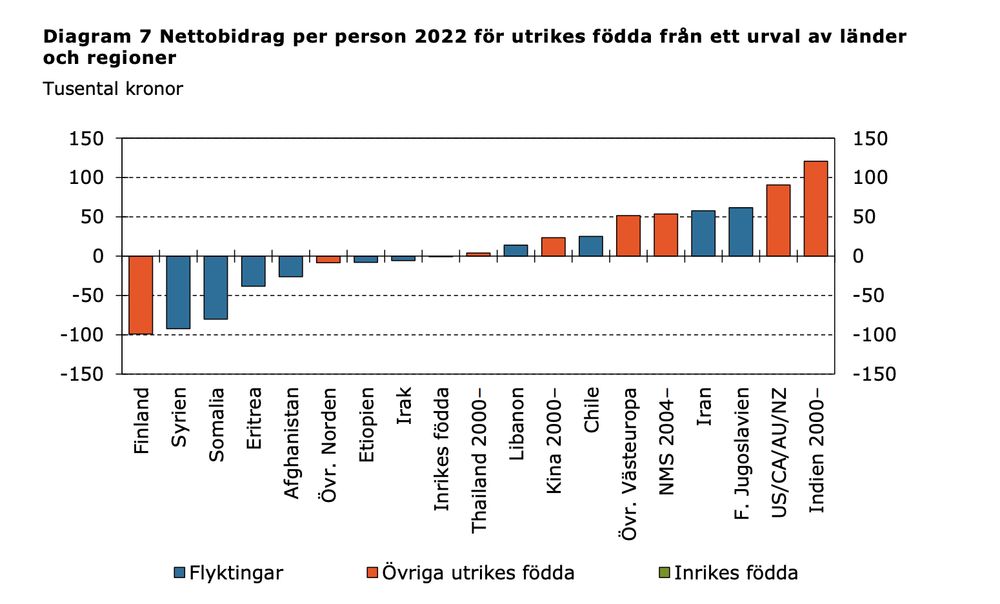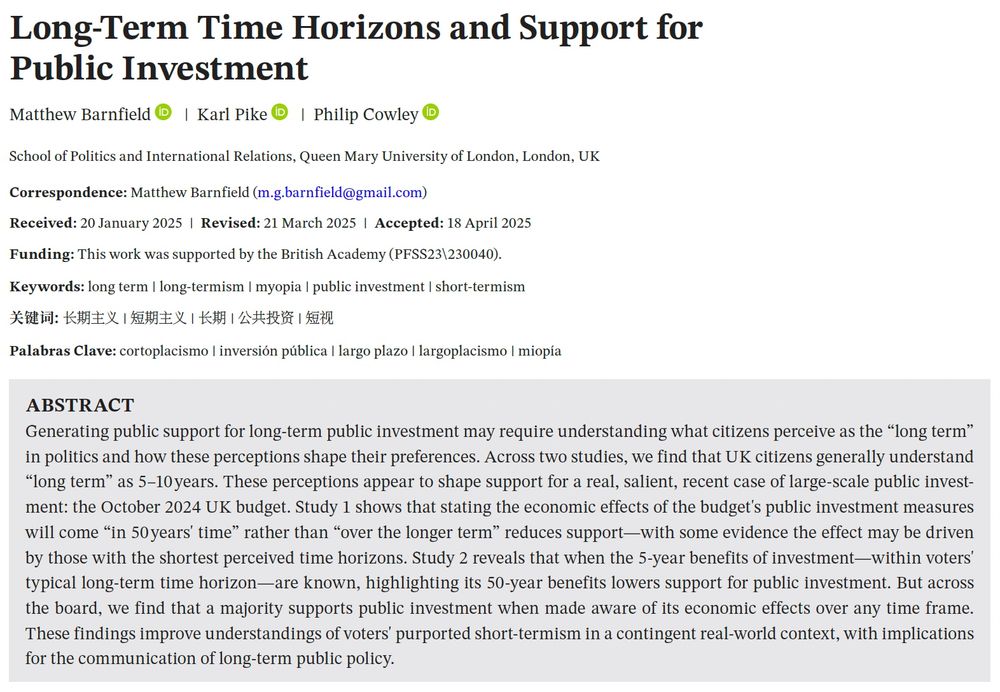
Russia? Climate change? AI?
No. It seems the real threat and thus priority issue, for many in the European Parliament, is... the veggie burger.
www.euractiv.com/news/parliam...
Like, seriously?
@mfair.bsky.social
Prof. of environmental and political sociology. Sweden-based (Uppsala Uni + Institute for Futures Studies), formerly Canada, U.S., Mexico, UK. Decoupling, public opinion, learning from successes, modeling emissions. And political trust. www.fairbrother.org

Russia? Climate change? AI?
No. It seems the real threat and thus priority issue, for many in the European Parliament, is... the veggie burger.
www.euractiv.com/news/parliam...
Like, seriously?
Yes, that's what they did. A quick search suggests that's a thing. Guess I can live with it, though I don't think it's got the same bravado as an em dash!
06.10.2025 18:51 — 👍 1 🔁 0 💬 0 📌 0Dear world, I am a pedant.
@universitypress.cambridge.org published an article of mine, and changed all the em dashes ("—”) into en dashes (”–”).
They also added a space after the minus symbol for all negative numbers (though no space after the plus for positives).
¯\_(ツ)_/¯
I am unsettled.

New publication!
Aleš Kudrnáč and I have a new paper in npj Climate Action about public support for climate policymaking. Prior studies have emphasized the importance of people's perceptions of policies' costs. But we find perceptions of benefits matter even more!
rdcu.be/eJkGb
"Collaboration needs to be the ultimate goal if eight billion of us are going to have a bright future on this planet," said Jeremy Hansen, astronaut, at a NASA news conference today.
"Just having humanity stop for a moment and say, 'Wow, look at what we can do when we work together.'"
Love this.

Logo of the Journal of Public Policy with the text "#OpenAccess" below in white on a black background.
#OpenAccess from @jpublicpolicy.bsky.social -
How do Europeans want to fight climate change? Comparing and explaining public support for a wide variety of policies - cup.org/3W89P1g
- @mfair.bsky.social, Ingemar Johansson Sevä & @joakimkulin.bsky.social
#FirstView
bsky.app/profile/mfai...
26.09.2025 09:57 — 👍 0 🔁 0 💬 0 📌 0So political trust is a key factor shaping people's views of different policies, and we conclude that distrust is a problem. We aren't saying people should blindly trust their political leaders. But we think people are often too cynical, and that is weakening the fight against climate change.
(5/5)
People with more trust are more accepting of costly policies, and it seems political trust makes people more confident that costs will be compensated by benefits. Because most people are distrusting, however, costly policies are unpopular--even policies experts recommend, like taxes.
(4/n)
A major reason for scepticism is that people don’t trust political leaders to design and implement policies fairly and effectively. We found that such distrust makes many people particularly hesitant about policies that will mean paying an obvious cost—like taxes. (Think Yellow Vests.)
(3/n)
People believe climate change is a real and serious problem, and want governments to do something about it. But it’s less clear what specific actions they would like to see, and public scepticism about some solutions has been a major reason for the world's slow action on climate change.
(2/n)
In this new paper, we present one of the largest ever studies of public support for different climate policies--16 policies, 6000+ respondents in four countries (DE ES PL SE), and a survey experiment that makes a big contribution to our understanding of why people prefer the policies they do.
(1/n)
”Wir schaffen das.” (We can handle this.)
Ten years ago today. I’ll always appreciate that Merkel said that. She was right.

Come on Europeans, up your game!
27.08.2025 18:02 — 👍 2 🔁 0 💬 0 📌 0
In our new study in Population and Environment, we examine how environmental concerns shape public attitudes toward childbearing in Sweden. We find views linking environmental concerns with reproduction are widespread, even if we find less support that they affect behavior.
doi.org/10.1007/s111...
There will be benefits for some U.S. industries, costs for others. Same in the EU.
The fact that Trump sees tariffs as a win, and according to this deal the U.S. will charge tariffs, doesn't mean Americans have gained something at Europeans' expense. Rather, there will costs to pay on both sides.
A lot of coverage of the big trade deal suggests the EU somehow lost out bigtime... and the U.S. "won".
To be clear: The U.S. "won" only a game whose rules emanated from Trump's mind.
Mainly, EU products will now be more expensive for U.S. consumers to buy, as their government taxes imports.

Hmm…
“Eventually these papers will all be written by an AI agent and then another AI agent will actually read them, analyse them and produce a summary for humans. I actually think that’s what’s going to happen.”
One or two lectureships in the sociology department at Uppsala.
Excellent applicants wanted!

Important climate-related announcement by the European Commission today.
Not as ambitious as green groups wanted, but some MS's (Italy, Poland, Czechia, partly France and Germany) refused to go further.
I've read only DK, ES, FI, LU, NL, and SI were fully supportive.
ec.europa.eu/commission/p...
Canada is lucky to have you!
01.07.2025 17:07 — 👍 0 🔁 0 💬 1 📌 0Headline result: ”exposure to most types of extreme weather event does not predict policy support”.
Thus far, this and other papers suggest experiencing extreme weather events does not make a notable difference to people’s views.
It might yet start doing that. But not yet.

Budapest: At least 100,000 people defied Viktor Orbán’s ban & to marched in the largest LGBTQ+ Pride event in Hungary's history
28.06.2025 21:30 — 👍 778 🔁 143 💬 18 📌 12This looks great! I would be interested in taking this.
However, it's in the middle of the night, for us here in Europe... any chance you would consider running this again sometime, so it's during our daytime?
Yep. Disproportionately likely to come to Sweden to take high-paying tech jobs (and so they contribute a lot in tax).
14.06.2025 12:01 — 👍 0 🔁 0 💬 1 📌 0That's a good record to play on repeat!
Plus of course this whole exercise is a big simplification generally.
And even if some groups are net-costs (e.g., refugees) that doesn't mean admitting them was bad. I'm proud of Sweden precisely as a country that has accepted many refugees--a virtuous act.

Yes, you're correct--my language was a little imprecise.
If you want to read the summary, all the materials are here:
www.konj.se/publikatione...

This is great.
The Swedish government asked the National Institute of Economic Research to calculate the net economic costs of immigrants... and they came back with the answer that immigrants contribute to the economy, overall, while native-born Swedes are a net cost!
#nottheansweryouwerelookingfor

Title and abstract. Title: Long-Term Time Horizons and Support for Public Investment. Abstract: Generating public support for long term public investment may require understanding what citizens perceive as the “long term” in politics and how these perceptions shape their preferences. Across two studies, we find that UK citizens generally understand “long term” as 5–10 years. These perceptions appear to shape support for a real, salient, recent case of large-scale public investment: the October 2024 UK budget. Study 1 shows that stating the economic effects of the budget's public investment measures will come “in 50 years' time" rather than “over the longer term” reduces support—with some evidence the effect may be driven by those with the shortest perceived time horizons. Study 2 reveals that when the 5-year benefits of investment—within voters' typical long-term time horizon—are known, highlighting its 50-year benefits lowers support for public investment. But across the board, we find that a majority supports public investment when made aware of its economic effects over any time frame. These findings improve understandings of voters' purported short-termism in a contingent real-world context, with implications for the communication of long-term public policy.
Our paper “Long-Term Time Horizons and Support for Public Investment” is open access @psjeditor.bsky.social (w/ @karlpike.bsky.social @philipjcowley.bsky.social).
Whether the public supports policy that pays off in the long term depends on what “long term” means.
doi.org/10.1111/psj.70040

"European support for American academics represents a pragmatic opportunity that the United States capitalised on more than 80 years ago. Following the Nazis’ rise to power in Germany, American universities became sanctuaries ... Today, Europe has the chance to mirror that historical moment."
27.05.2025 15:39 — 👍 0 🔁 0 💬 0 📌 0